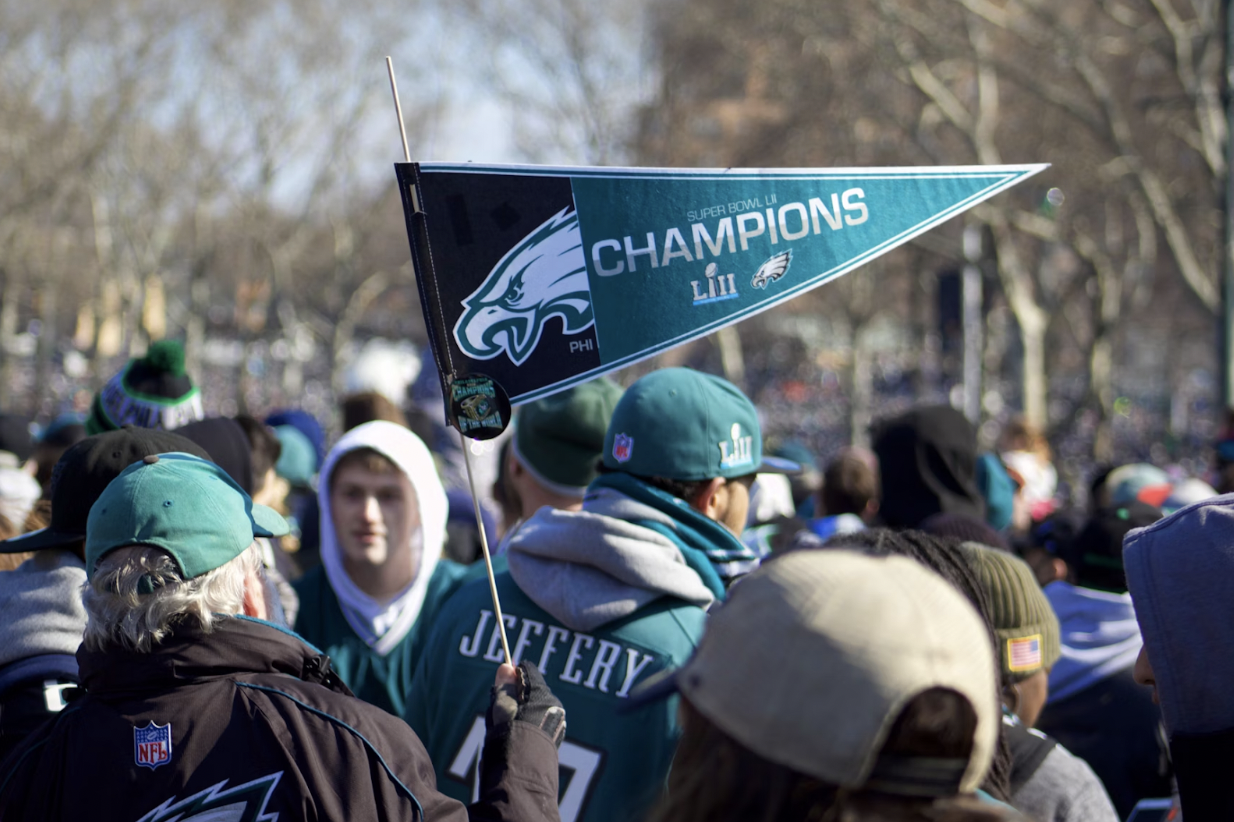
In the NFL, odds tell a story long before kickoff. They reflect not only how a team performs but how it’s perceived by oddsmakers, fans, and the broader football world.
For the Philadelphia Eagles, the line between favorite and underdog shifts weekly, shaped by more than wins and losses.
Every Sunday feels like a new chapter in that story. Some weeks, the Eagles are viewed as dominant contenders, expected to control the game from start to finish. Other weeks, even against familiar rivals, the line tightens or flips entirely.
Understanding why those shifts happen can provide deeper insight into how performance, health, and perception intertwine to create the ever-evolving Eagles betting landscape.
The most obvious and arguably most consistent driver of weekly odds is the strength of the opponent. When the Eagles face teams struggling to find rhythm or sitting low in the standings, sportsbooks and analysts often position them as clear favorites. It’s a reflection of talent, depth, and recent history.
However, the dynamic flips when the opponent commands respect. Matchups against high-tier squads like the 49ers, Chiefs, or Cowboys tend to bring tighter point spreads or even underdog status.
These games aren’t just battles of skill; they’re showdowns of narrative. Oddsmakers weigh win-loss records, defensive ratings, offensive balance, and situational strengths before drawing a line.
Fans watching weekly movements in Philadelphia Eagles odds can see this play out in real time. Facing a division rival or Super Bowl contender can narrow spreads overnight, especially if those teams carry momentum or boast elite quarterback play.
Strength of schedule matters as well. During stretches against multiple playoff-caliber opponents, even strong teams see smaller margins as oddsmakers anticipate fatigue or regression.
Few factors move lines faster than injuries. The absence of one key player, especially a starting quarterback or cornerstone defender, can reshape an entire game narrative. The Eagles know this reality well, as player availability often shifts both betting sentiment and fan confidence.
Recent weeks have shown how quickly news about Landon Dickerson’s injury or Jalen Carter’s questionable status can ripple through projections. Offensive line health, in particular, plays a major role in how oddsmakers evaluate Philadelphia’s offensive potential.
Still, the Eagles’ depth often softens the blow. This team is built on a “next man up” mentality, with backups capable of starting outside of their usual positions. When replacements perform well, it stabilizes future lines and reinforces the perception that the Eagles are resilient.
Key health-related factors that influence weekly lines include:
These considerations don’t just affect spreads; they define how fans and analysts alike gauge the team’s adaptability and resilience from week to week.
The Eagles’ recent form plays a crucial role in their weekly status. Oddsmakers respond to patterns, whether that’s a winning streak or a few games where execution dips. A strong record doesn’t always inspire confidence if performance metrics raise questions.
During a 4–1 results stretch, concerns about offensive predictability and efficiency are often tempered by enthusiasm. The Eagles may be winning, but bettors and analysts track deeper indicators like third-down success, red-zone conversion, and turnover margin. When those metrics fluctuate, so do the odds.
Recent data shows Philadelphia excelling in the red zone but struggling on early downs. That mix can result in being favored but not overwhelmingly so, a reflection of respect tempered by realism.
Winning streaks build confidence, yet sharp observers seek sustained efficiency. When the Eagles combine dominance with creative play-calling, their favored status grows stronger. When rhythm falters, the underdog label quickly returns.
Numbers don’t move on stats alone; they move on sentiment. Public betting behavior often shapes how sportsbooks adjust lines throughout the week.
When most bets flood in on one side, oddsmakers shift the spread to balance action. This isn’t always confidence in one team’s ability; it’s more about managing the surge of fan enthusiasm.
Eagles fans, loyal and vocal, frequently drive this dynamic. Their belief in the team’s potential, especially after dominant wins, can keep Philadelphia favored longer than performance data might justify. Meanwhile, experienced bettors (often called sharps) move lines in the opposite direction when they spot inefficiencies the public overlooks.
The weather also plays a role. A windy forecast in Philadelphia or icy December conditions in Chicago can quickly alter totals and spreads. These subtle shifts remind fans that odds are living reflections of both data and emotion, a constant tug between analytics and optimism.
Beyond performance and injuries, a handful of subtle factors quietly influence how the Eagles are viewed each week:
These small variables rarely grab headlines, yet they consistently shape perception, turning minor details into measurable impacts on how each matchup is framed.
For fans following the league beyond the Eagles, these same forces are at play everywhere. The NFL’s unpredictability is what keeps every week fascinating. Understanding how sportsbooks interpret data, momentum, and emotion allows fans to better appreciate the strategy behind the numbers.
Those tracking upcoming NFL games and props will recognize familiar patterns, such as quarterback performance shaping totals, injuries shifting midweek lines, or public hype inflating a favorite’s spread. The dance between performance and perception is universal, and few teams embody it more than the Eagles.
Each week, Philadelphia’s designation as an underdog or favorite offers more than a prediction; it reveals a snapshot of how the team is viewed in the moment. Oddsmakers weigh opponent quality, player health, recent trends, and public behavior to create lines that reflect both data and psychology.
For fans, those odds capture the tension between expectation and execution, between the faith that the Eagles will rise and the understanding that the NFL can humble even the best. Whether favored or overlooked, the team’s identity remains constant: competitive, capable, and unpredictable enough to make every Sunday worth watching.
*Content reflects information available as of 09/10/2025; subject to change